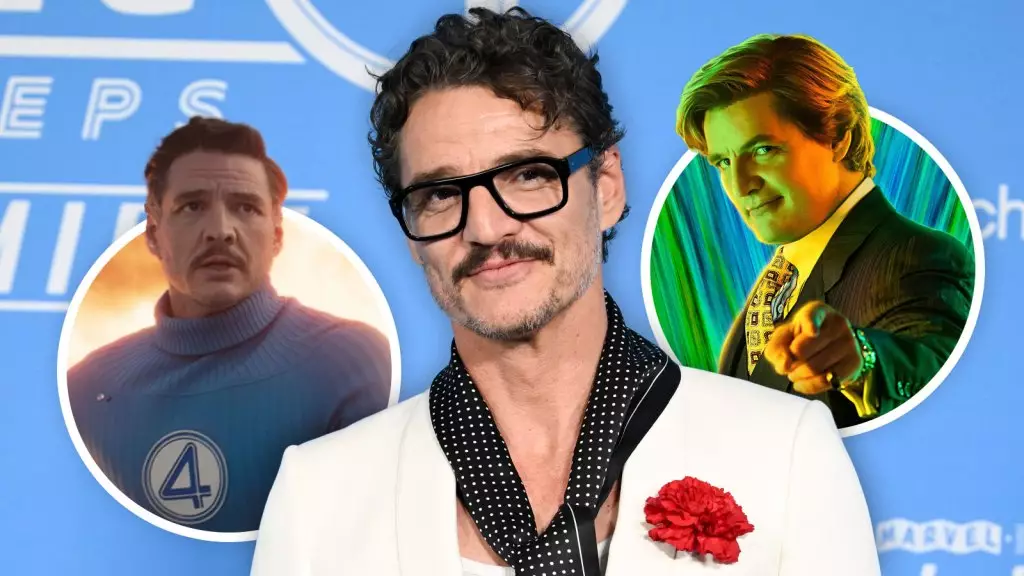Pedro Pascal’s candid reflections on his past roles reveal a depth of self-awareness that is rarely seen in the celebrity sphere. His admission of being “appalled” by his appearance in Wonder Woman 1984 exposes a vulnerable side that many stars conceal. This transparency demonstrates Pascal’s willingness to critique himself rigorously, perhaps even more than external critics do. It’s rare to see an actor openly discuss their dissatisfaction with their look, especially within the high-pressure environment of blockbuster filmmaking where image often takes precedence. Pascal’s attitude underscores a broader truth: personal acceptance is an ongoing journey, particularly in an industry that constantly demands perfection. His remark about disliking his clean-shaven face and preferring his naturally scruffy look challenges Hollywood’s often rigid standards of beauty, advocating instead for authenticity and self-expression.
His reflections also highlight the impact of personal aesthetics on professional choices. Pascal reveals he only shaved for Wonder Woman if it was absolutely necessary—an act that signifies both his comfort with his natural appearance and his resistance to societal pressures. This stance is refreshing, suggesting that creators and performers alike should prioritize comfort and individuality over adherence to misconstrued notions of attractiveness. Pascal’s honesty serves as a subtle protest against superficial perfection, echoing a zeitgeist where self-acceptance increasingly becomes a revolutionary act.
Public Scrutiny and Navigating Industry Expectations
Pascal’s transition from DC to Marvel exemplifies the shifting landscape of superhero fame, but not without challenges. His candid discussion about the backlash he faced when cast as Reed Richards in The Fantastic Four showcases his resilience in the face of public criticism. The critical voices he recounts—calling him “too old” or “not right”—expose the superficial judgments that actors often face in genre films. Pascal’s acknowledgment of these comments reveals a perceptive awareness of the skewed standards promoted by social media and fandom. His response suggests that true professionalism involves dismissing noise that undermines credibility, and instead focusing on delivering a performance that defies expectations.
Moreover, Pascal’s revelations about his interpretation of Reed Richards’ powers—drawing inspiration from the octopus—illustrate a creative confidence that pushes boundaries. Instead of conforming to stereotypical hero archetypes, he embraces a more nuanced, intellectually driven portrayal. This approach emphasizes that superheroes are multidimensional characters deserving of complex interpretation, not just visual spectacle. Pascal’s willingness to challenge conventional superhero tropes indicates a forward-thinking attitude that could redefine how audiences engage with genre films, shifting the focus from mere physicality to personality and depth.
Redefining Superhero Stardom: Courage, Authenticity, and Artistic Freedom
Pascal’s journey exemplifies an evolving narrative about what it means to be a leading man in the superhero universe. His readiness to speak openly about his discomfort with how he looked—while simultaneously taking on roles that defy industry norms—demonstrates courage and authenticity. It’s a bold statement that greatness doesn’t require conforming to traditional standards of attractiveness or age suitability. His stance invites a broader conversation about diversity, representation, and the importance of embracing one’s true self in Hollywood.
Furthermore, Pascal’s casting in The Fantastic Four, despite initial fan backlash, signifies a shift toward valuing talent and personality over superficial factors. His confidence—paired with a willingness to push creative boundaries—embodies the new wave of actors who prioritize substance over style. As he prepares to take on the role of Reed Richards, Pascal seems poised to challenge fans’ preconceived notions of what a superhero actor should embody, emphasizing brains and character over superficial appearances. His candidness about industry pressures and self-image, combined with his forward-thinking approach to character development, positions him as a trailblazer in redefining what it means to be a hero on both the screen and in the hearts of audiences.

